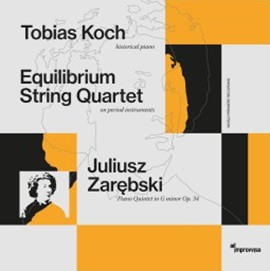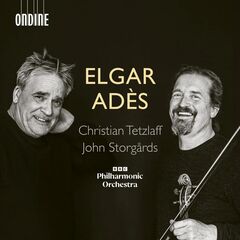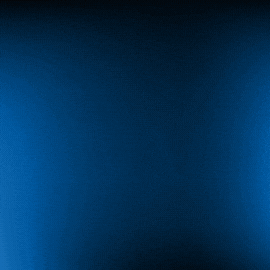Christian Tetzlaff bindet auf seinem aktuellen Album zwei Violinkonzerte zusammen, bei denen er meint, dass die Komponisten etwas geschrieben haben, von dem sie meinten, dass sie damit berühren und etwas bewegen können. Und dass es klanglich magische Musik ist.
Beide Werke stammen von englischen Komponisten, nämlich Adès und Elgar. Und sie sind unter manchem Aspekt wirkliche Violinkonzerte, die in je drei Sätzen für das Instrument und seinen singenden Charakter geschrieben wurden. Modern im Ausdruck sind sie ebenfalls, wenn auch nicht im Sinne zwölftöniger Charakteristik.
In diesem Sinne gibt Tetzlaff dem Werk von Elgar eine feurige und freudige Note, die sich auch in der Dauer von knapp einer dreiviertel Stunde niederschlägt und nicht wie oft zu hören in mehr als fünfzig Minuten pastoser Ausdehnung. Denn wenn Tetzlaff spielt, dann sind seine Interpretationen jedenfalls nicht langweilig. Er gestaltet immer interessante Linien und nicht gehörte Details, die er prägnant herausarbeitet. Das Konzert von Elgar mag ungewöhnlich klingen, da ein Feuer immer auch für überraschendes Züngeln oder auflodern gut ist, das den Fluss immer wieder aufbricht. Jedenfalls tritt Tetzlaffs missionarischer Eifer für dieses Konzert deutlich hervor.
Damit bietet er bei Elgar auch die modernen Seiten an, die dieser eher versteckt einarbeitete. Denn Elgar blieb trotz kleinen Modernismen der harmonisch romantischen Linie treu. Damit blieb sein Stil, wenn man Entwicklungen in der Musik als Party wahrnimmt, hinter etwa der Zwölftonmusik zurück. Er bot aber trotzdem sehr interessante und damit bemerkenswerte Weiterentwicklungen an, die nur hinter anderen zurückblieben.
Bei dem Konzert Concentric Paths von Adès lässt sich der von Tetzlaff gewählte Stil ebenso beschreiben. Im ersten Satz setzt Adès auf den enorm hohen Gesangspart für den Luftgeist Ariel aus seiner Shakespeare Oper noch einen drauf und führt die Violinsolostimme in ein wahnwitziges Perpetuum mobile, das Christian Tetzlaff mit nonchalanter Eleganz meistert. Doch auch die Geräusche am Boden, also im tiefsten Register der Geige am Ende des mittleren Satzes weiß Tetzlaff mit Nachdruck zu zeigen. Im dritten Satz bringt er mit standhafter Energie ansteckend und unwiderstehlich den Solopart des Konzerts zu Ende.
Nach dem Auftritt für Elgar mit den gleichen Partnern im Konzert lag diese personelle Kopplung auch für die Aufnahme nahe. Und mit dem Dirigenten hat er auch schon anderes eingespielt, so dass sich diese beiden glänzend ergänzen. Das BBC Philharmonic Orchestra folgt dem spannend formulierten Weg bestens mit aufmerksamer und durchgestalteter Formulierung. Damit liegen alle Zutaten, zuzüglich des Interviews mit dem Geiger im begleitenden Text und der rundum gelungenen technischen Umsetzung vor, um diese Einspielung zu empfehlen.
On his latest album, Christian Tetzlaff brings together two violin concertos which, in his opinion, were written by composers who believed they could touch and move people with their music. And that it is magical music in terms of sound.
Both works are by English composers, namely Adès and Elgar. And in many respects, they are true violin concertos, each written in three movements for the instrument and its singing character. They are also modern in expression, although not in the twelve-tone sense.
In this sense, Tetzlaff gives Elgar’s work a fiery and joyful touch, which is also reflected in the duration of just under three quarters of an hour, rather than the more than fifty minutes of pasty expansion that is often heard. Because when Tetzlaff plays, his interpretations are certainly not boring. He always creates interesting lines and unheard details, which he brings out concisely. Elgar’s concerto may sound unusual, as fire is always good for surprising flickers or flares that repeatedly break up the flow. In any case, Tetzlaff`s missionary zeal for this concerto is clearly evident.
In doing so, he also offers the modern aspects of Elgar, which the latter tended to incorporate in a rather hidden way. For despite small modernisms, Elgar remained true to the harmonically romantic line. Thus, if one perceives developments in music as a party, his style lagged behind, for example, twelve-tone music. Nevertheless, he offered very interesting and thus remarkable further developments that simply lagged behind others.
The style chosen by Tetzlaff can be described in the same way in Adès’ concert “Concentric Paths.” In the first movement, Adès takes the enormously high vocal part for the air spirit Ariel from his Shakespeare opera one step further and leads the violin solo part into a frenzied perpetuum mobile, which Christian Tetzlaff masters with nonchalant elegance. But Tetzlaff also emphatically demonstrates the sounds at the bottom, i.e., in the lowest register of the violin at the end of the middle movement. In the third movement, he brings the solo part of the concerto to a close with steadfast energy that is infectious and irresistible.
After performing Elgar with the same partners in concert, it was only natural to bring them together again for the recording. He has also recorded other works with the conductor, so the two complement each other brilliantly. The BBC Philharmonic Orchestra follows the excitingly formulated path perfectly with attentive and well-structured phrasing. This means that all the ingredients are there, plus the interview with the violinist in the accompanying text and the thoroughly successful technical implementation, to recommend this recording.























